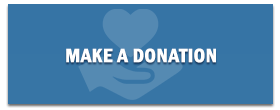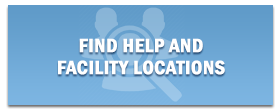WESTCARE U.S. VIRGIN ISLANDS PROGRAMS
The Village Sion Hill Long Term Residential Therapeutic Community Program
The Village Sion Hill Long Term Residential Therapeutic Community Program
The Village Partners In Recovery Strength ProjectThe Village Virgin Islands Sion Hill Therapeutic Community Program provides long-term, residential, intensive alcohol and other drug abuse treatment services for adult men and women, including persons suffering from mental illness. The Village's Sion Hill campus is located on the grounds of an 18th Century sugar plantation on the island of St. Croix in the United States Virgin Islands. The program, as the only residential substance abuse treatment program in The Territory, provides culturally relevant residential services to residents of the islands of St. Croix, St. Thomas and St. John. Lengths of stay in this program range from two to six months Sion Hill Therapeutic Community has a very diverse client population of native Virgin Islanders and persons who have relocated from the United States and from many other Caribbean islands. The program is uniquely structured to meet the cultural needs of this diverse population and includes a full complement of bi-lingual and bi-cultural staff. The Sion Hill Therapeutic Community Program is unique in that it blends evidence-based services for those with co-occurring disorders. Clients benefit from a full scope of services specifically designed to address both substance abuse and mental health issues, while at the same time having the opportunity to participate as full and active members of the Therapeutic Community.
Program services include individual and group counseling; alcohol and drug education classes; substance abuse and mental health education classes; medication management, life skills training, substance abuse and mental health relapse prevention; evidence based treatment modalities including cognitive restructuring and trauma services; referral to community based support services; optional onsite and community-based, 12-Step meetings; family and significant other educational/support services; medical services, mental health treatment and counseling. All these services are built within the framework of a modified therapeutic community structure that promotes learning and practicing pro-social behavior, assuming personal responsibility for one's behavior and for others, and gaining the life and social skills necessary to maintain sobriety and lead a productive life. During the final phase of treatment at Sion Hill, clients are provided with a supported transition back into the community, begin working, and focus on establishing themselves as contributing members of their community.
[ Back to Top ]
Positive Change Program St. Croix – St. Thomas/St. JohnThe Strength Project uses the Strengthening Families Program (SFP), which is a scientifically tested curriculum that helps parents learn nurturing skills that support their children. It also teaches parents how to effectively discipline and guide their youth, giving youth a healthy future orientation. The SFP curriculum includes six seven-week courses: Parent Training, Youth Skills Training and Family Life Skills Training. During the first hour of each session, the parent group leader works with the parents to help them learn to increase desired behaviors in youth by using attention and rewards, clear and effective communication, effective and supportive discipline, substance use education, problem solving and limit setting. The parent group leader also facilitates discussion among parents and guides parental understanding of new concepts. During the first hour, the youth group leader teaches youth effective communication, understanding feelings, social skills, problem solving, resisting peer pressure, consequences of substance use and compliance with parental rules. During the second hour, all three group leaders work together to help families engage in structured family activities, practice therapeutic play, conduct family meetings, learn communication skills, practice learned effective discipline, reinforce positive behaviors in each other, and plan family activities together. As a group, program staff implements the SFP curriculum and take advantage of opportunities to assist families in becoming comfortable with their newly learned skills. A graduation ceremony is conducted for all families who complete the program. Each family receives a family gift packet/starter kit, which includes a family movie, game and prevention information materials to help them continue what they have learned while attending the sessions. A booster session for all families is held to provide a refresher course on topics learned and a reunion to encourage family support.
[ Back to Top ]
The Positive Change Program is designed to provide substance abuse and behavioral health services to students in the 6th through 12th grades enrolled in the Alternative School program in the St. Croix and St. Thomas/St. John school districts.
Comprehensive Diagnostic/Functional Behavioral Assessments:
- Comprehensive Treatment Plans; Individualized Behavioral Modification Plans, Mental Health Plans, in indicated, Substance Abuse Treatment plans, if indicated, Transition/ Monitoring Plans for Return to Conventional Classroom.
- Core Curriculum "Positive Action" is a top-ranked evidence based character development curriculum that addresses academics, behavior and character. Positive Action provides short, interactive learning modules that are structured around the "thoughts – actions – feelings" principles of cognitive restructuring. Areas addressed include; Violence Prevention, Anger Management, Conflict Resolution, Character Development, Pro-social Skills Development, Values Clarification, and Substance Abuse Prevention.
Mental health Counseling:
- Substance Abuse Treatment – implementing Motivational Enhancement Therapy/Cognitive Behavioral Therapy for Adolescent Cannabis Users (MET/CBT12), to those program participants identified as active substance abusers. Additionally, the parents of students who participate in the MET/CBT12 curriculum will be provided with the Family Support Network Model to assist them in learning the dynamics of adolescent substance abuse and appropriate parenting techniques to support their child's drug free lifestyle. Students and their families meet weekly for 60 – 75 minutes for 12 weeks.
[ Back to Top ]




